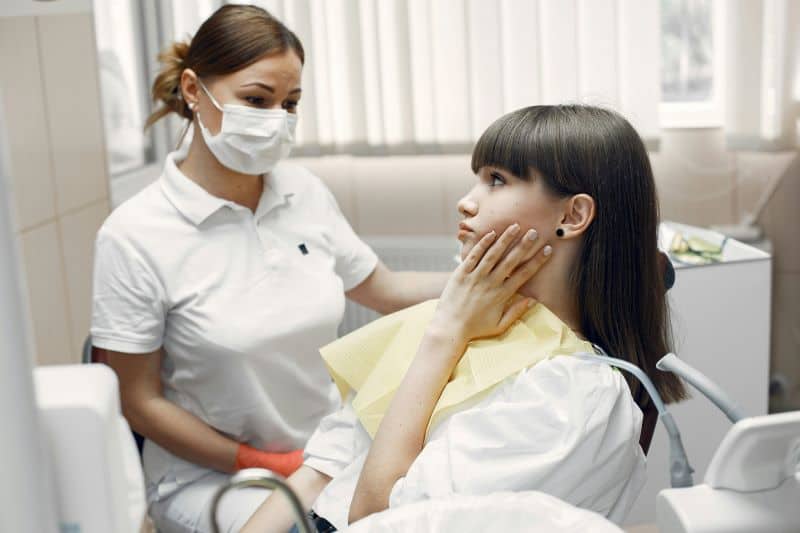
26 Oct Can You Heal a Cavity Naturally?
Can You Heal a Cavity Naturally?
Tooth decay is a concern for millions, and cavities are among the most common issues. People have long explored natural remedies, but is it really possible to heal a cavity naturally? In this article, we’ll explore the science, methods, and myths around natural cavity healing, so you can make informed choices for your dental health.
Is It Possible to Heal a Cavity Naturally?
While professional dental treatments are recommended for significant decay, minor cavities can potentially be reversed through remineralization.
Remineralization vs. Cavity Reversal
Remineralization is the natural process of restoring lost minerals to the tooth surface, particularly enamel. While it can help strengthen teeth and slow decay, complete cavity reversal is complex and often depends on the cavity’s depth.

Remineralization and How It Works
Remineralization can help restore minerals to teeth, strengthening them and possibly preventing cavities from worsening.
Benefits of Remineralization for Teeth
Remineralization strengthens enamel, makes teeth more resilient to decay, and may help in the initial stages of cavity formation. This process can be supported by fluoride, calcium, and phosphate.
Natural Remedies for Healing Cavities
Natural remedies like oil pulling, xylitol, and remineralizing toothpaste are commonly suggested for healing cavities.
Common Home Remedies for Cavities
Oil Pulling: Swishing oil in the mouth may reduce harmful bacteria.
Salt Water Rinses: Saltwater can relieve pain and reduce bacteria.
Xylitol: This sugar substitute may inhibit cavity-causing bacteria.
How Effective Are Natural Remedies?
While some remedies may help prevent further decay, they may not fully heal a cavity. Remineralization can slow decay, but professional intervention is typically needed for established cavities.
Dietary Changes to Support Cavity Healing
Diet plays a significant role in dental health. Avoiding sugary foods, acidic drinks, and eating nutrient-rich foods can support tooth health.
Foods That Promote Strong Teeth
Leafy greens, dairy products, nuts, and fibrous vegetables are excellent for teeth. Foods rich in calcium, phosphorus, and vitamins D and K contribute to stronger teeth.
Foods to Avoid When Healing Cavities
Sugary snacks, soda, and acidic foods weaken enamel. Reducing these in your diet can help prevent cavities and aid in the healing process.
Oral Hygiene Practices for Cavity Prevention
Good oral hygiene is essential for preventing and managing cavities.
The Role of Brushing and Flossing
Brushing twice a day and flossing daily helps remove food particles and plaque, reducing bacteria that cause decay. Using a soft-bristled brush minimizes enamel wear.
Using Mouthwash and Natural Oils
Mouthwash can reduce bacteria and freshen breath, while natural oils like coconut oil may provide additional antibacterial benefits.

Oil Pulling and Cavity Healing
Oil pulling is an ancient practice used for oral health.
What Is Oil Pulling?
Oil pulling involves swishing oil, typically coconut or sesame, in the mouth to reduce bacteria.
Benefits of Oil Pulling for Dental Health
Studies suggest oil pulling may reduce harmful bacteria, freshen breath, and potentially benefit oral health.
Probiotic Benefits for Oral Health
Probiotics have been found to support healthy bacteria in the mouth.
How Probiotics Impact Oral Bacteria
Oral probiotics may reduce cavity-causing bacteria and promote a healthier balance, reducing decay risk.
Best Sources of Probiotics for Teeth
Fermented foods like yogurt, kefir, and supplements can be beneficial for oral health.
Role of Supplements in Cavity Healing
Certain vitamins and minerals support strong teeth and aid in cavity prevention.
Key Nutrients for Strong Teeth
Calcium, vitamin D, magnesium, and phosphorus are essential for tooth health. Vitamin D is particularly important as it helps the body absorb calcium.
Supplements That May Help Remineralize Teeth
Supplements like vitamin D, calcium, and vitamin K2 may aid in strengthening teeth, promoting enamel health, and supporting remineralization.
Natural Toothpaste Options
Natural toothpastes are free of artificial ingredients and are often fluoride-free.
Ingredients in Natural Toothpastes
Ingredients like baking soda, coconut oil, and xylitol are common in natural toothpastes and may support remineralization.
Comparing Natural and Traditional Toothpastes
Natural toothpastes lack fluoride, which may make them less effective in preventing decay. However, they may be preferred for those avoiding synthetic additives.

Frequently Asked Questions (FAQs)
Can Natural Remedies Fully Heal a Cavity?
While they may prevent further decay, they rarely heal significant cavities. Professional dental care is advised.
What Is the Best Natural Way to Heal Cavities?
The best methods include diet changes, oil pulling, and maintaining excellent oral hygiene.
How Long Does It Take to Heal a Cavity Naturally?
Healing or reversing early cavities through remineralization may take several weeks with consistent care.
Are Cavities Contagious?
Yes, cavity-causing bacteria can be spread through saliva.
Can Kids Heal Cavities Naturally?
Children’s teeth can benefit from remineralization, but professional advice should be sought.
Is Oil Pulling a Proven Method to Heal Cavities?
Oil pulling can reduce bacteria but is not a proven treatment for healing cavities.
Final Thoughts on Healing Cavities Naturally
While natural remedies and good oral hygiene are crucial for prevention, established cavities often require professional care. Early detection, diet, and supplements can strengthen teeth and slow down decay, but regular dental visits are essential for comprehensive care.


Sorry, the comment form is closed at this time.